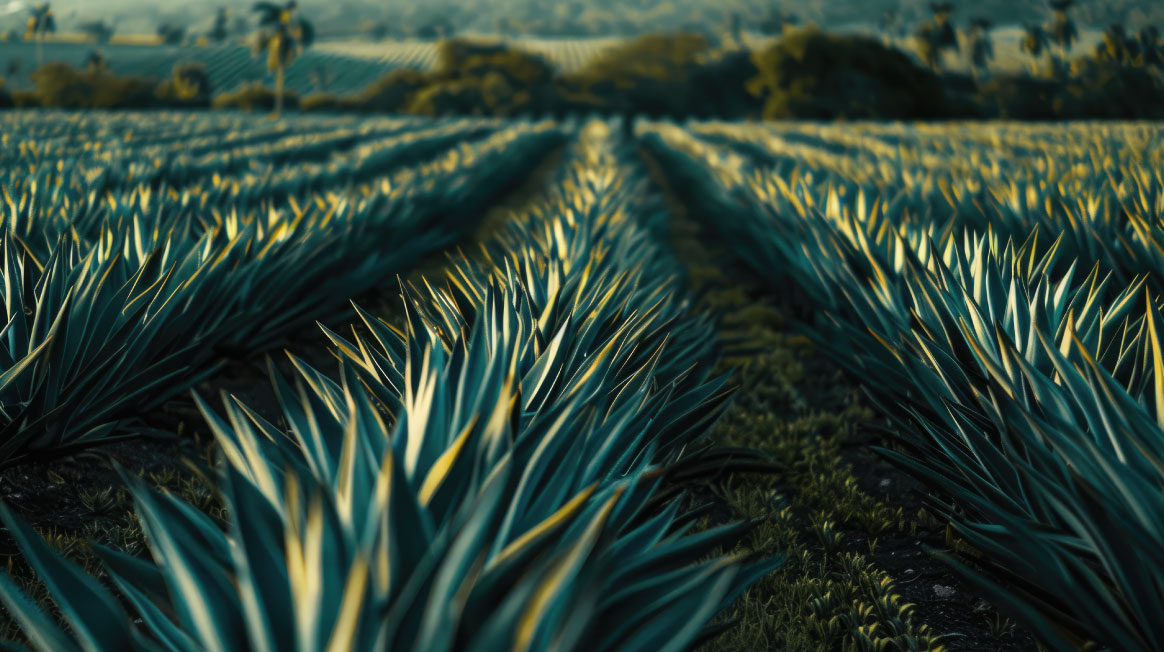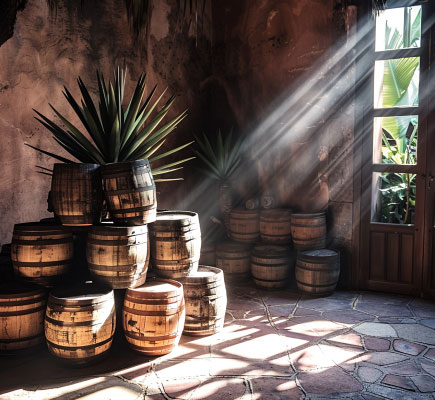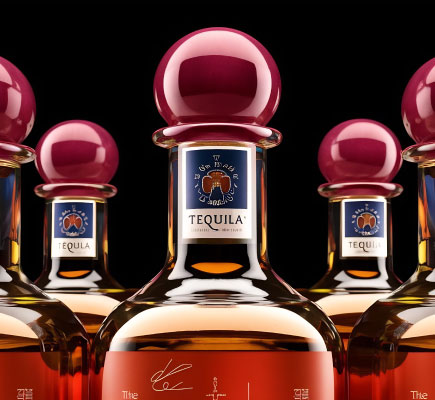
From Agave Plant to Cask Sales
Tequila production begins in Mexico’s arid regions, where blue agave is harvested by skilled jimadores. The hearts, or piñas, are roasted, crushed, and fermented to produce sugar-rich juice. This is distilled and either bottled immediately or aged in barrels to develop richer characteristics. Once aged, tequila is categorised into types Blanco, Reposado, or Añejo based on its time in oak. In the UK, cask sales require precise labelling, strength adjustments, and logistics planning. Drinkswork works directly with distillers and bottlers to source certified casks for trade, resale, or private purchase, helping clients access premium agave spirits that meet strict legal standards.
- CRT (Consejo Regulador del Tequila): Governs tequila standards and designation of origin.
- ABV (Alcohol by Volume): Percentage of ethanol per volume.
- NOM (Norma Oficial Mexicana): Distillery code on the bottle.
- Blanco: Unaged tequila, bottled after distillation.
- Reposado: Aged 2–12 months in oak casks.
- Añejo: Aged 1–3 years in small barrels.
- Extra Añejo: Aged over 3 years, deeply complex.
- Miniature (50ml): Used for samples and travel sizes.
- Half Bottle (375ml): Common in tasting flights.
- Standard Bottle (700ml): Retail standard in the UK.
- Magnum (1.5L): Premium format, limited editions.
- Cask (200L–250L): Ageing barrels, usually American oak.
- Gorda (700L): Rare, for blending or maturation.
- IBC Tank (1000L): Industrial, used in mass shipment.


Harvesting and Roasting Agave Hearts
Jimadores hand-harvest the blue agave plant when it reaches full maturity, typically after 7 - 10 years. The spiky leaves are removed, leaving the core or piña. These piñas are slow-roasted in either traditional stone ovens or stainless steel autoclaves, transforming their starches into fermentable sugars. The choice of oven and duration of roasting affect the spirit’s final flavour. Once roasted, the softened hearts are shredded or crushed to extract sweet agave juice. This foundational step determines much of the tequila’s body and aroma and marks the beginning of an intricate artisanal process.
Fermentation and Careful Distillation Process
The extracted agave juice is fermented with natural or cultured yeast in large stainless steel or wooden tanks. Fermentation can last several days and may include the fibres of the plant for added flavour. Once fermented, the liquid is distilled, typically twice, in copper or stainless steel stills. The first run creates a rough spirit (ordinario); the second produces the refined tequila. This stage is critical for removing impurities and capturing the core of the flavour. Only tequila produced in designated regions and with 100% blue agave can be labelled as true tequila.
Maturation, Categorisation and Barrel Types
After distillation, some tequilas are rested in oak barrels for varying durations. Blanco is unaged, Reposado rests 2 - 12 months, and Añejo matures for 1 - 3 years. Extra Añejo must be aged more than three years. Barrel selection American white oak, French oak, or used whisky casks, imparts unique flavours like vanilla, caramel, or spice. Cask ageing transforms the spirit into something more complex and refined. Drinkswork sources casks with clear provenance and regulated age statements, ensuring buyers know the exact maturation profile of each cask offered for UK trade or bottling.
Export, Sales and UK Distribution Strategy
Drinkswork facilitates export logistics and bottling preparation for cask-purchased tequila. Tequila must be legally exported from Mexico under CRT certification, then transported to bonded facilities in the UK. Here, alcohol duty, VAT, and bottling compliance are handled according to UK law. Our team supports clients through every regulatory checkpoint, from strength adjustment to labelling ensuring each cask or bottle meets HMRC standards. Whether for resale, private enjoyment, or long-term holding, our end-to-end process ensures integrity and clarity. Casks can be bottled, stored, or transferred under licensed ownership, making entry into the tequila market efficient and secure.



